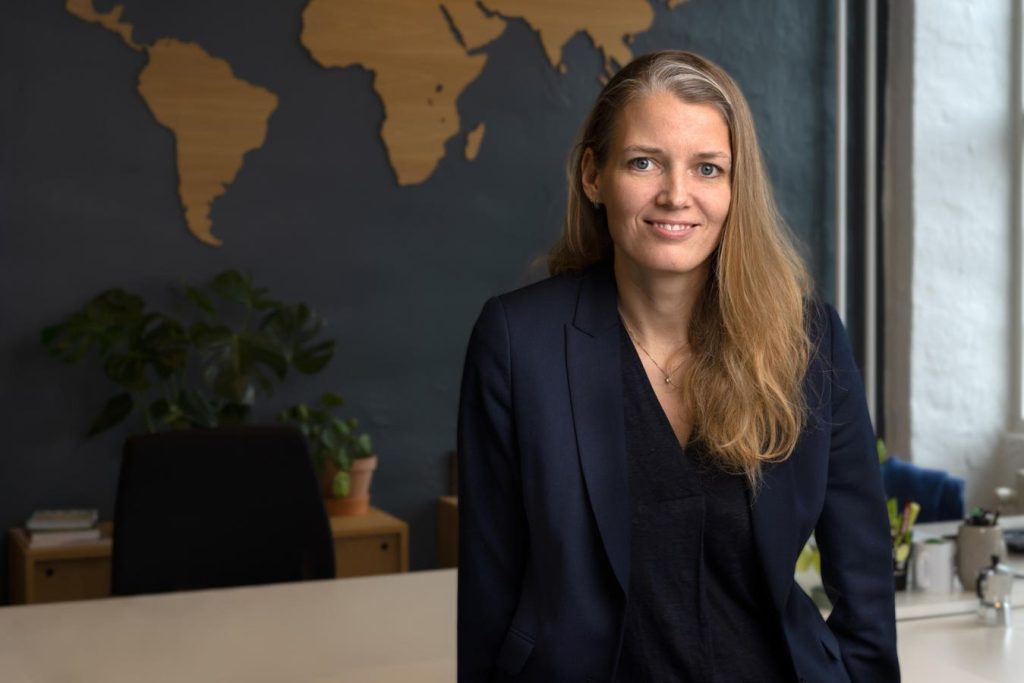When Mette Lykke, the CEO of Copenhagen-based Too Good To Go, met Alexandre Mars, a serial entrepreneur and founder of the investment fund blisce, she asked him: Where does your money come from?
It was an unusual question: Most startup leaders are just happy to get in front of a venture capitalist in hopes of getting cash. But Too Good To Go is a rapidly growing, company that is expanding in the United States. Lykke wanted to make sure that the company’s investors were aligned with its mission to
ADVERTISEMENT
In France, they say: “L’argent a une odeur,” Mars told me. That translates to “money has a smell.”
Too Good To Go had many potential investors to pick from as it raised a 50M Euro round in 2022. Mars’ venture fund, Blisce, ended up in the mix. Its money apparently smelling fine. The company is profitable on a monthly basis this year, for the first time, with revenue of 102M Euro a year, according to Lykke.
Too Good To Go is interesting because it’s one of those rare things: a fast-growing company with a nearly unassailable social mission: saving food waste. As the social entrepreneurship space matures, there are a few others that seem similarly strong, including Cotapaxi. At this point, at least, Too Good To Go looks like a win-win-win, for investors and founders, for the environment and for consumers and food companies that use the platform.
The app solves a big, often-ignored problem – it’s a strange one, in a world with so much hunger: food waste. It connects consumers to grocery stores and restaurants with surplus food, enabling the businesses to sell the leftovers at a low price in “Surprise Bags” that the consumers pick up. The bags cost anywhere from $3.99 to $15.99 (judging by the app I downloaded for my hometown, Alexandria, Va.), and consumers pick them up in narrow windows of time listed on the app.
ADVERTISEMENT
One key question for a company in that enviable position is how to stay there. As she worked on finding investors, Lykke was seeking something that’s becoming more of a focus as the social entrepreneurship space grows: alignment.
New Focus on Alignment
One of the dirty secrets behind shareholder-driven capitalism – and the reason that so many corporate executive and entrepreneur embraced the idea that their highest calling was to make profits — is that it’s just easier.
It’s not easy: It’s hard to grow a sustainable, profitable business of any kind.
But in the current financing system for innovation, it’s that much harder to build one that also produces a societal good and yet stays flexible enough to adapt as society changes. To have a chance, the people working in the space are focusing more on the question of alignment. If an entrepreneurs’ investors don’t have patience and flexibility, the chances that a company can maintain its mission are next to zero. To create a new world where companies genuinely seek to do good and make a profit, everyone needs to be aligned, from limited partners to venture funds to entrepreneurs.
ADVERTISEMENT
A Small VC Firm with a Substantial Track Record
A native of France, Mars is a long-time entrepreneur, venture capitalist and philanthropist. He’s also the author of Mission Impossible: How To Build A Business For Our Times, released in January. With it, he aimed to show people how much self-doubt assails entrepreneurs, and how they overcome it by persisting through the chaos of the early years of a business. “You have to give that kind of spirit to all the people who believe it’s not for them,” he said in an interview earlier this year. “I’m trying to explain to the people that they are putting themselves under too much pressure.”
With four children, he talks openly about balancing his family life with his work. He practices Monday night dinners with each of his children, who get to pick the restaurant and control the agenda.
ADVERTISEMENT
With $500 million in assets under management, Blisce was founded in 2014. It calls itself “pragmatically optimistic;” some of its investments include companies that most people wouldn’t call mission driven, including Spotify, Pinterest and Headspace. But Too Good To Go falls in the mission-driven space close to Mars’ heart. He’s also a philanthropist, supporting nonprofits around the world through the Epic Foundation.
Blisce is one of the first B Corp investment firms in the world. Certified B Corps are those that adhere to high standards on societal and environmental performance, make a legal commitment to be responsible to all stakeholders, not just shareholders, and allow transparency. There are about 6,000 B Corps worldwide, including some large companies, like Patagonia and Danone.
Blisce’s new fund is focused on companies that work in the deforestation and reforestation space. Publicly held ESG funds haven’t historically performed well compared with the market. But Blisce has produced a 30% year over year return for seven years, Mars said. It’s had eight exits.
ADVERTISEMENT
How Lykke Joined Too Good To Go
Lykke co-founded Endomondo, one of the first running apps. After it was acquired by Under Armour, she went to work for the athletic wear company as a vice president. Then, on a bus ride in Copenhagen, she saw a woman using Too Good To Go.
“I just fell in love with the idea,” she said. She reached out to the founders to ask if she could help; invested a few weeks later – and later became the CEO. The company now has about 1,100 employees. Though it faces some new competitors, Too Good To Go is the largest app of its kind, she said.
Successful in Europe, it expanded in the United States in 2020, Lykke said, because of the large amount of food waste here. The business depends on its ability to sign up food businesses in new cities; its sweet spots are in supermarkets, bakeries and fast casual restaurants. It has been operating in more than a dozen U.S. markets but is now adopting a national strategy which is a bit of a chicken-and-egg problem: It needs to sign up big companies, like supermarket chains, but needs a national presence to show that. A few months ago, she said Too Good To Go would hire about 100 employees in the United States to help.
ADVERTISEMENT
Almost 40% of food is wasted globally, according to Lykke. In 2021, the U.S. EPA estimated that food waste embodied carbon dioxide equal to the emissions of 42 coal plants. The company’s key metric is meals saved: 220 million to date, according to Lykke.
Now, both Lykke and Mars are intent on demonstrating that it is possible to be aligned – to provide good returns to investors, to treat people well, and to be good for the planet or society. Lykke says she helps hopeful entrepreneurs who reach out to her figure out their business models; Mars, for his part, is focused on keeping achieving the returns in his VC fund with companies that have those unassailable business models.
Read the full article here










